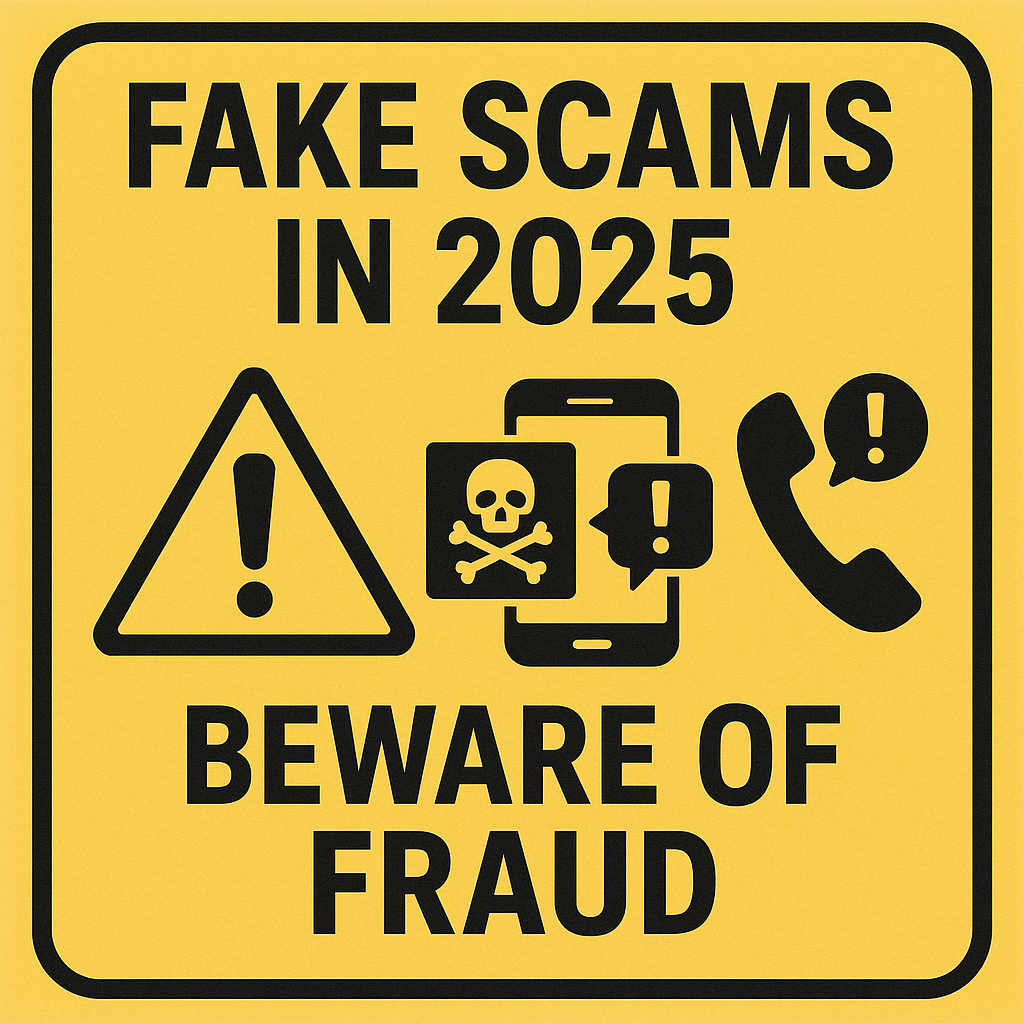🚨 Beware: The Latest Online, Phone, and Text Scams You Need to Know (2025)
In 2025, scammers are more cunning than ever—using AI, social engineering, and increasingly realistic tactics to trick people out of money or personal information. Whether it's a text that looks like it's from your bank, a phone call claiming to be the IRS, or a convincing email from a fake company, staying alert is your best defense.
Here’s a roundup of the latest scams making the rounds—and how you can protect yourself.
1. AI Voice Cloning Phone Scams
Scammers are now using AI to clone voices of family members, friends, or even company executives. You may get a call that sounds like your child or spouse in distress, asking for money.
Example: "Mom, it's me—I need help. I’ve been arrested and need you to wire $1,000 right now."
✅ How to protect yourself:
• Hang up and call the person back directly.
• Set up a “safe word” with family for emergencies.
• Never send money without verifying through another method.
2. Fake Bank Texts & Click-to-Verify Links
You get a text saying your bank account is locked or a suspicious transaction occurred. It includes a link to "verify" your identity.
Example: “Chase Alert: Unusual login attempt. Click here to secure your account: [fake link]”
✅ How to protect yourself:
• Never click on links in unsolicited texts or emails.
• Log into your account via the official app or website.
• Contact your bank directly if unsure.
3. Job Offer and Work-From-Home Scams
Fake recruiters on LinkedIn or job boards offer high-paying remote jobs that seem too good to be true. They may ask you to pay for training materials, equipment, or request banking info for “direct deposit.”
✅ How to protect yourself:
• Research the company before responding.
• Never send money to a potential employer.
• Real employers don’t ask for banking info or payments before hiring.
4. Package Delivery Phishing Texts
Scammers send texts pretending to be from USPS, FedEx, or UPS, claiming there’s a package waiting or a delivery issue.
Example: “Your FedEx package couldn’t be delivered. Update your delivery info: [malicious link]”
✅ How to protect yourself:
• Don’t click the link—visit the official carrier website directly.
• Use package tracking numbers you know are real.
5. Fake Tech Support Calls
You get a pop-up or call from "Microsoft" or "Apple" saying your computer has a virus and they need remote access.
✅ How to protect yourself:
• Legitimate companies do not call you to fix your computer.
• Never give remote access unless you initiated the call.
• Shut down your device and contact your trusted tech support.
6. Social Media Marketplace Scams
Scammers list fake items for sale on Facebook Marketplace or OfferUp, requesting payment in advance—then vanish.
✅ How to protect yourself:
• Meet in person at a public location.
• Use platforms with purchase protection.
• Never pay via Zelle, Venmo, or wire for unseen goods.
7. Romance Scams Are on the Rise Again
Especially on dating apps and Facebook, scammers pose as romantic interests who quickly start asking for money for emergencies, travel, or even crypto investments.
✅ How to protect yourself:
• Be skeptical of anyone who avoids video chatting or meeting in person.
• Never send money to someone you haven’t met face-to-face.
Final Tips to Stay Safe:
• Enable two-factor authentication on all online accounts.
• Use unique passwords for every account—consider a password manager.
• Report scams to the FTC (www.reportfraud.ftc.gov) or your country’s cybercrime unit.
⚠️ Stay alert. Ask questions. Trust your instincts.
The more you know, the harder it is for scammers to succeed.


